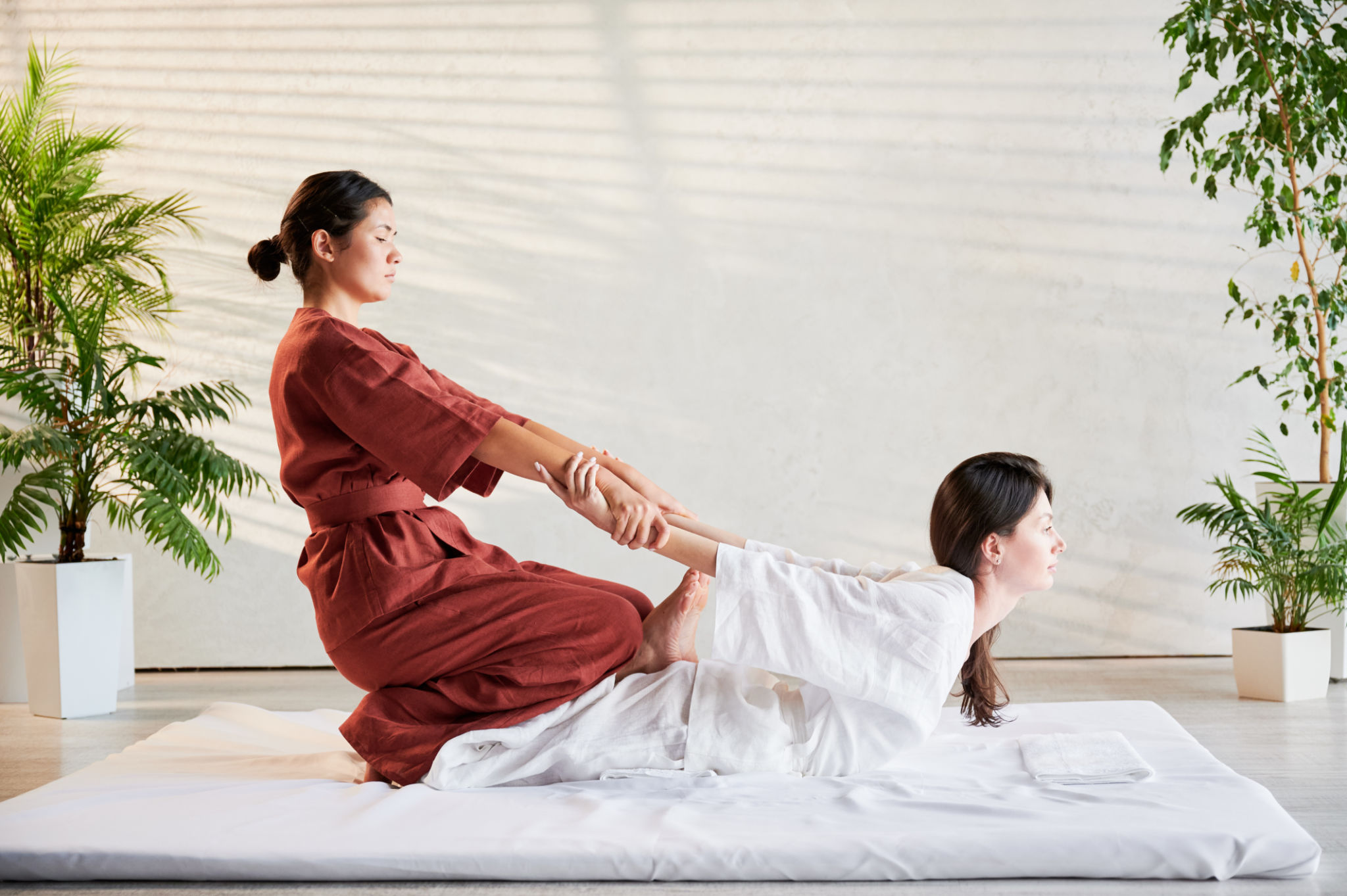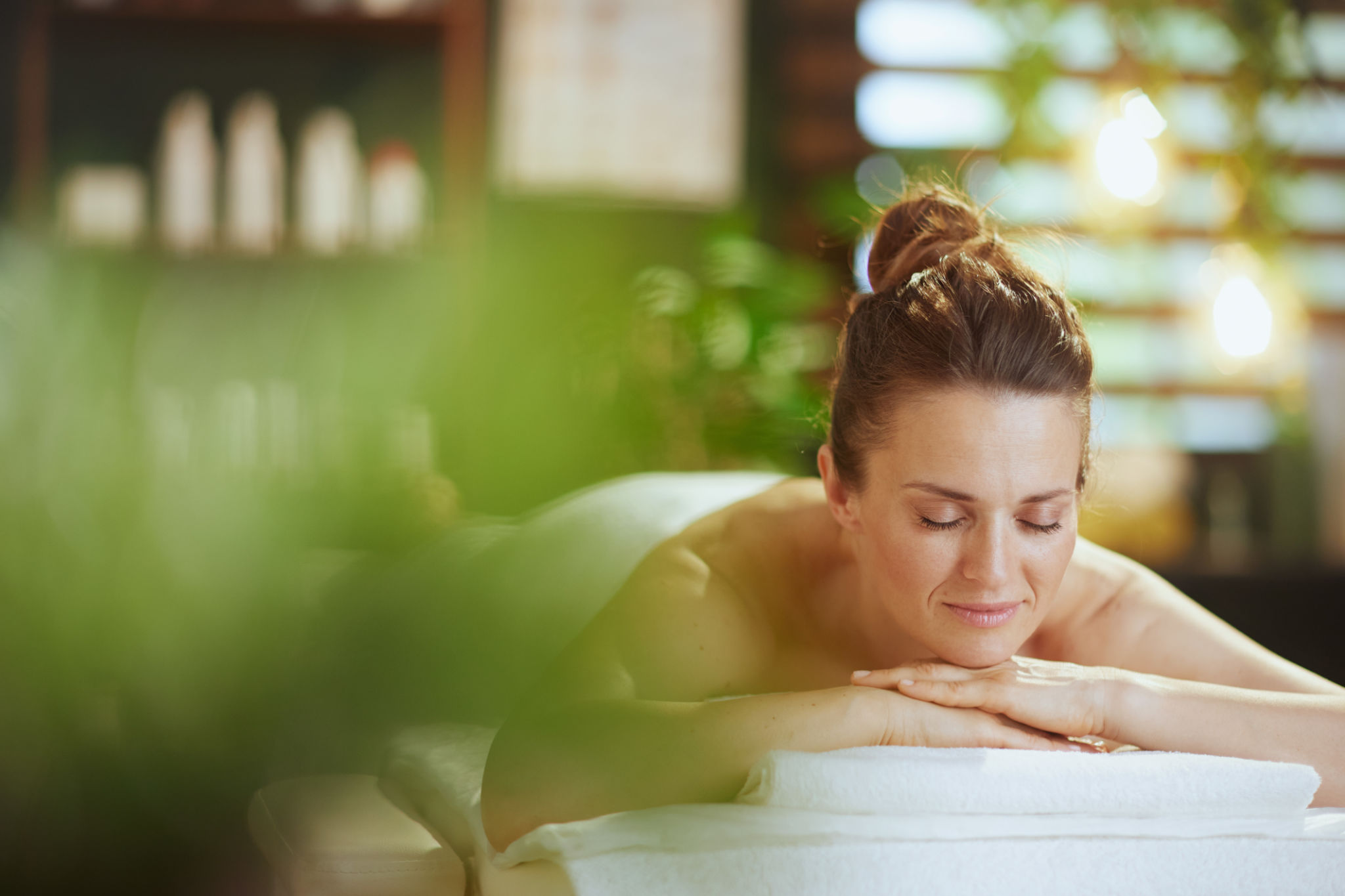The Therapeutic Benefits of Thai Massage
Understanding Thai Massage
Thai massage is a unique form of bodywork that combines elements of yoga, acupressure, and Ayurveda. It is an ancient healing practice that originated in Thailand over 2,500 years ago. Unlike the typical Western massage, Thai massage involves the therapist using their hands, elbows, knees, and feet to move the client into a series of yoga-like stretches. This deeply holistic therapy is designed to restore balance and harmony to the body and mind.
One of the most distinctive features of Thai massage is that it is performed on a mat on the floor rather than on a table. The recipient remains fully clothed during the session, which often lasts between one and two hours. This allows for a comprehensive approach to healing that is both invigorating and relaxing.

Physical Benefits of Thai Massage
The physical benefits of Thai massage are manifold. It can help improve flexibility and range of motion due to its focus on stretching and movement. This makes it an excellent choice for athletes or anyone looking to enhance their physical performance. Additionally, Thai massage can reduce muscle tension and joint stiffness, making it a popular option for those suffering from chronic pain conditions such as arthritis or fibromyalgia.
The practice also stimulates blood circulation, which can aid in detoxifying the body and improving the function of internal organs. By boosting circulation, Thai massage promotes the delivery of oxygen and nutrients to body tissues, fostering overall health and wellness.
Mental and Emotional Benefits
Beyond its physical advantages, Thai massage offers significant mental and emotional benefits. It encourages a state of deep relaxation, which can help reduce stress and anxiety levels. This therapeutic touch therapy has been shown to increase serotonin and dopamine levels, which are chemicals in the brain associated with happiness and well-being.
Regular sessions of Thai massage can also improve mental clarity and concentration. The meditative nature of the practice allows individuals to disconnect from their daily stresses and refocus their minds. This can be particularly beneficial for those dealing with high-stress environments or feeling overwhelmed by life's demands.

Thai Massage Techniques
Thai massage employs a variety of techniques to achieve its therapeutic effects. These include rhythmic pressing, stretching, and rocking motions, which are designed to release tension and enhance the flow of energy throughout the body. Practitioners use their whole body to apply pressure and create dynamic stretches that target specific muscle groups.
The use of passive stretching distinguishes Thai massage from other forms of bodywork. This technique not only increases flexibility but also helps lengthen the spine and open up joints, contributing to improved posture and alignment.
Who Can Benefit from Thai Massage?
Thai massage is suitable for people of all ages and fitness levels. Whether you are an athlete seeking to improve performance, an office worker dealing with stress, or someone in need of relief from chronic pain, Thai massage can offer numerous benefits. However, it is always advisable to consult with a healthcare professional before beginning any new therapeutic practice, especially if you have underlying health conditions.

Those who are pregnant or have specific health concerns should inform their therapist beforehand to ensure that modifications can be made to accommodate their needs safely.
Incorporating Thai Massage into Your Routine
Incorporating Thai massage into your wellness routine can be a transformative experience. Many individuals find that regular sessions help maintain their physical health while also offering a much-needed respite from the stresses of daily life. To experience the full benefits of Thai massage, consider scheduling regular appointments with a qualified practitioner who understands your individual needs.
In conclusion, Thai massage offers a holistic approach to healing that addresses both physical and emotional well-being. By integrating this ancient practice into your lifestyle, you can enjoy a multitude of therapeutic benefits that contribute to overall health and happiness.